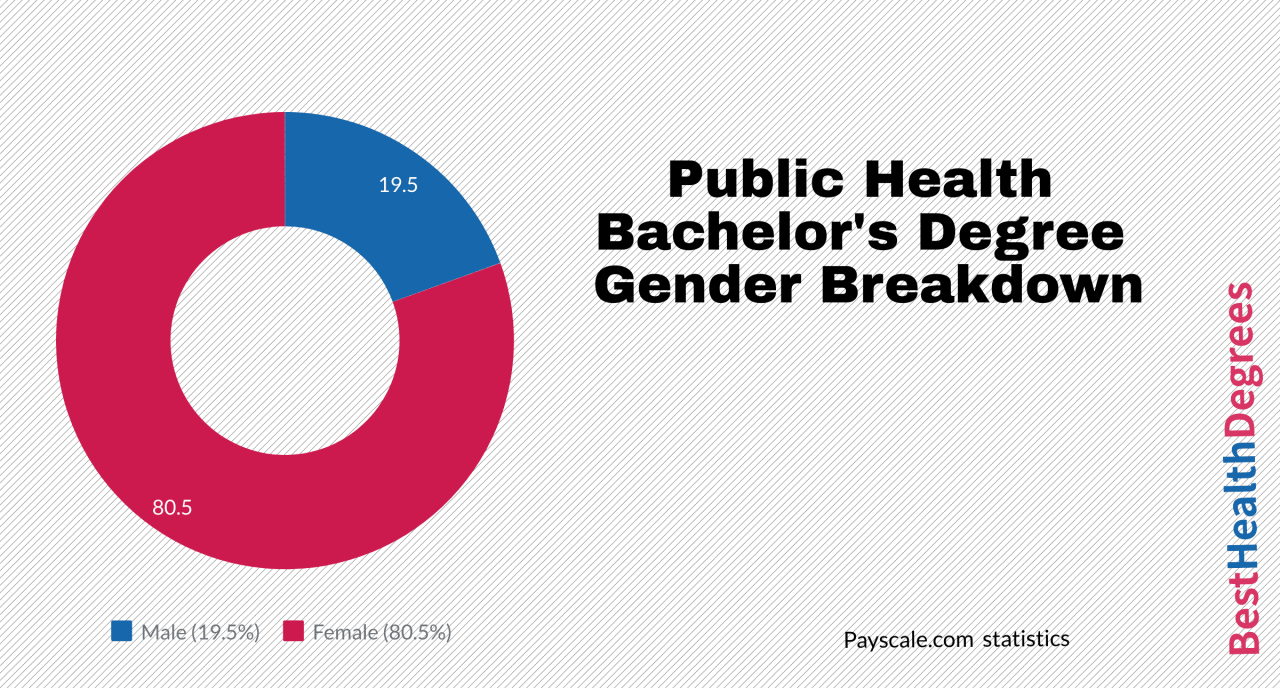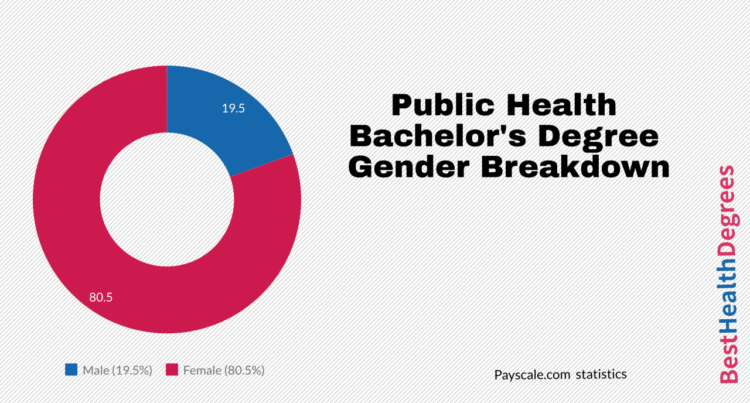
Program Overview
A Public Health Bachelor’s degree program equips students with the knowledge and skills to address and improve the health of populations.
Typically spanning four years, the program curriculum covers core principles in:
- Epidemiology
- Biostatistics
- Environmental health
- Health promotion and disease prevention
- Social and behavioral sciences
Typical Structure
The program combines coursework with practical experiences, such as internships and research projects, to provide a comprehensive understanding of public health practice.
Career Paths
Graduates with a Public Health Bachelor’s degree pursue careers in:
- Public health agencies
- Non-profit organizations
- Healthcare settings
- Government agencies
- Research institutions
Curriculum
The Public Health Bachelor’s degree program provides a comprehensive curriculum that equips students with the knowledge and skills necessary to address public health challenges. Through a combination of core and elective courses, students gain a deep understanding of the principles and practices of public health.
Core Courses
Core courses in a Public Health Bachelor’s degree program typically include:
- Introduction to Public Health: Provides an overview of the field, including its history, principles, and current issues.
- Biostatistics: Covers the statistical methods used in public health research and practice.
- Epidemiology: Studies the distribution and determinants of health-related events in populations.
- Environmental Health: Explores the impact of the environment on human health and how to mitigate environmental hazards.
- Health Policy and Management: Examines the development and implementation of health policies and programs.
- Social and Behavioral Sciences in Public Health: Investigates the social and behavioral factors that influence health and well-being.
- Public Health Practice: Provides hands-on experience in applying public health principles to real-world settings.
Elective Courses
Elective courses allow students to specialize in areas of interest within public health. Some common elective courses include:
- Global Health: Focuses on health issues in developing countries.
- Maternal and Child Health: Addresses the health of women and children.
- Occupational Health: Examines the health risks associated with the workplace.
- Nutrition: Studies the relationship between diet and health.
- Health Communication: Explores the principles and practices of communicating health information effectively.
Assignments and Projects
Students in public health programs engage in a variety of assignments and projects to demonstrate their understanding of the material and apply their knowledge to real-world situations. Some common assignments include:
- Research projects: Students design and conduct research studies on public health topics.
- Policy analyses: Students analyze and critique public health policies.
- Health education campaigns: Students develop and implement health education campaigns.
- Community outreach projects: Students partner with community organizations to address public health issues.
- Presentations: Students present their research findings and policy analyses to classmates and faculty.
Practical Experiences
Practical experiences are an integral part of a Public Health Bachelor’s degree program. They provide students with the opportunity to apply the knowledge and skills they have learned in the classroom to real-world settings. These experiences can take many forms, including internships, research projects, and community engagement activities.
Practical experiences offer a number of benefits for students’ professional development. They allow students to:
- Gain hands-on experience in the field of public health.
- Develop their professional skills, such as communication, teamwork, and problem-solving.
- Network with professionals in the field.
- Explore different career paths in public health.
Internships
Internships are a great way for students to gain hands-on experience in the field of public health. Internships can be completed at a variety of organizations, including government agencies, non-profit organizations, and private companies. During an internship, students will typically work on a specific project or task under the supervision of a mentor.
Research Projects
Research projects are another valuable way for students to gain practical experience in public health. Research projects can be conducted in a variety of settings, including universities, hospitals, and community organizations. During a research project, students will typically work with a faculty member or other researcher to design and conduct a study on a specific public health topic.
Community Engagement Activities
Community engagement activities are a great way for students to get involved in their community and make a difference. Community engagement activities can take many forms, such as volunteering at a local health clinic or participating in a community health fair. During a community engagement activity, students will typically work with community members to address a specific public health issue.
Accreditation and Recognition

Accreditation is a crucial aspect of Public Health Bachelor’s degree programs as it signifies the quality and rigor of the education provided. It ensures that graduates possess the necessary knowledge, skills, and competencies to practice effectively in the field of public health.
The major accrediting bodies for public health programs in the United States include:
Council on Education for Public Health (CEPH)
– The CEPH is the most recognized accrediting body for public health programs at both the undergraduate and graduate levels.
– CEPH accreditation ensures that programs meet rigorous standards in areas such as curriculum, faculty qualifications, and student outcomes.
– Students can verify the accreditation status of a program by visiting the CEPH website and searching for the program’s name.
Agency for Healthcare Research and Quality (AHRQ)
– The AHRQ provides accreditation for public health programs that focus on research and quality improvement.
– AHRQ accreditation demonstrates that programs have the resources and expertise to conduct high-quality research and train students in research methods.
– Students can verify the accreditation status of a program by visiting the AHRQ website and searching for the program’s name.
Program Comparison
Choosing the right Public Health Bachelor’s degree program is crucial for your future career. To help you make an informed decision, we have compiled a comprehensive comparison table that highlights key factors to consider.
Our table includes information on program duration, tuition costs, location, and curriculum highlights. By carefully evaluating these factors, you can select the program that best aligns with your needs and aspirations.
Program Duration
Public Health Bachelor’s degree programs typically last for four years of full-time study. However, some programs offer accelerated options that allow students to complete their degree in less time.
Tuition Costs
Tuition costs for Public Health Bachelor’s degree programs vary depending on the institution and location. In-state tuition is typically lower than out-of-state tuition.
Location
The location of a program can be an important factor for students who prefer to study in a specific region or close to home. Consider the proximity of the program to healthcare facilities and other relevant resources.
Curriculum Highlights
The curriculum of a Public Health Bachelor’s degree program should provide a strong foundation in core public health concepts, such as epidemiology, biostatistics, and health policy. Look for programs that offer specialized tracks or concentrations that align with your interests.





